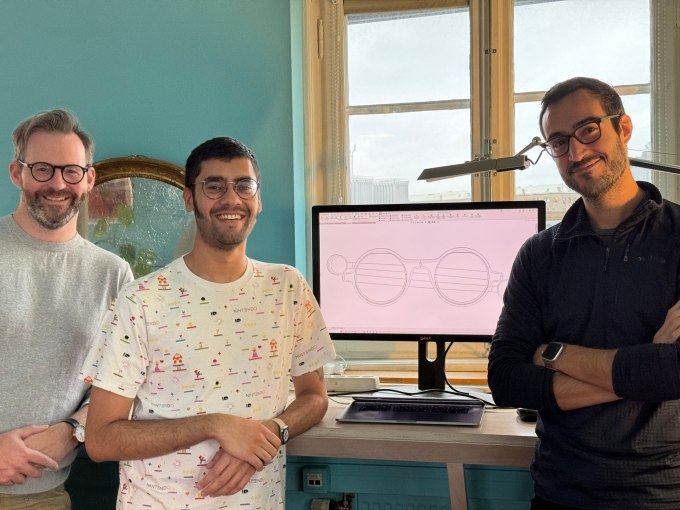Physical Address
304 North Cardinal St.
Dorchester Center, MA 02124
Physical Address
304 North Cardinal St.
Dorchester Center, MA 02124


In the week when gadget lovers around the world are enchanted by Vision Pro, a young, brave startup is trying to carve out a space for its augmented reality device that features a form factor starkly different from Apple’s device.
Today, Singapore-based Brilliant Labs announced its new product, Frame, a pair of lightweight AR glasses powered by a multimodal AI assistant called Noa. The glasses have captured the attention and investment of John Hanke, CEO of Niantic, the augmented reality platform behind games like Pokemon Go. Brilliant Labs declined to disclose the amount of funding it received from Hanke.
In a video demo seen by TechCrunch, one of Brilliant Labs’ founders asked Noa through voice for a self-introduction. After about three seconds, the agent generated and projected an answer in text onto the lenses.
In addition to voice commands, Noa is capable of visual processing, image generation and translation, thanks to the handful of AI models it has integrated: conversational search engine Perplexity AI; Stability AI’s text-to-image model Stable Diffusion; OpenAI’s latest text generation model GPT4; and the speech recognition system Whisper. Frame’s lenses have a resolution of 640 x 400 for displaying videos and photos.
With these features, a user shopping at a mall can ask Noa to check the online prices of a pair of shoes they are looking at through Frame, for instance.
“The future of human/AI interaction will come to life in innovative wearables and new devices, and I’m so excited to be bringing Perplexity’s real-time answer engine to Brilliant Labs’ Frame,” Aravind Srinivas, CEO and founder of Perplexity, said in a statement.
The question is whether Frame will be responsive enough for any of its AI-generated responses to be helpful. Brilliant Labs’ Bluetooth-enabled devices rely on a smartphone to access the various AI models today. Eventually, though, the founders want to do away with the phone host and embed lightweight machine-learning models directly into the glasses.

Brilliant Labs co-founders / Images: Brilliant Labs
Frame came after Brilliant Labs’ debut product, Monocole, a single-lens AR device that attracted a loyal following in the open source hardware community thanks to its programmability and affordability. A group of Stanford students once turned the device into a dating assistant that made real-time suggestions on what to say to one’s date.
Frame will continue to be open source like its predecessor, meaning developers will gain access to resources including living documentation, open source codebase and hardware schematics. They will also be able to adjust the parameters of Noa’s supported AI models.
Unlike the bulky Vision Pro, Frame is meant to be worn every day and comes with prescription lenses. Weighing 39 grams and featuring thick round frames made of nylon plastic, the glasses are, as the company puts it, an “homage to the groundbreaking innovations and ideas introduced by figures of history including John Lennon, Steve Jobs and Gandhi.”
Frame will be available for pre-order starting today and will retail at $349, the same as Monocle’s price tag. The devices will begin shipping in April.
Since its inception in 2019, Brilliant Labs has managed to attract a lineup of notable angel investors. Back in June, we reported its $3 million investment from Brendan Iribe, co-founder of Oculus; Adam Cheyer, co-founder of Siri; Eric Migicovsky, founder of Pebble and former partner at Y Combinator; and others. The new capital injection from Hanke brings the firm’s total financing to $6 million.